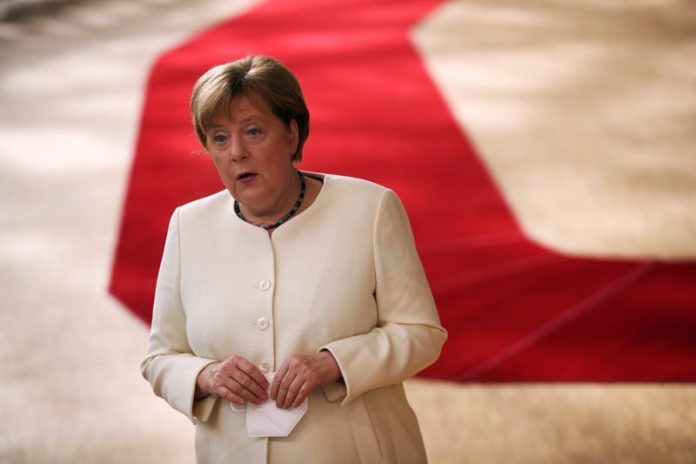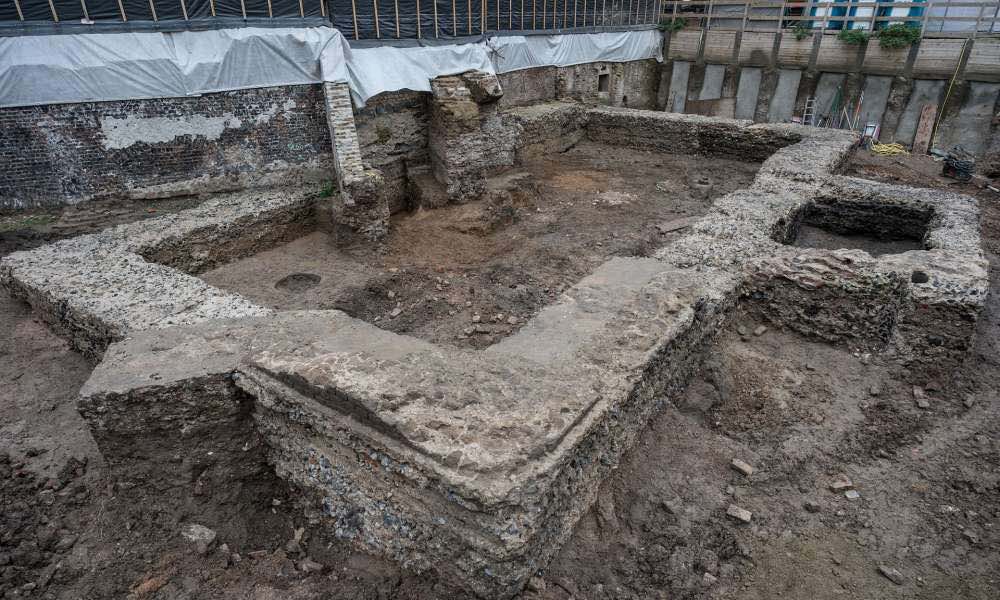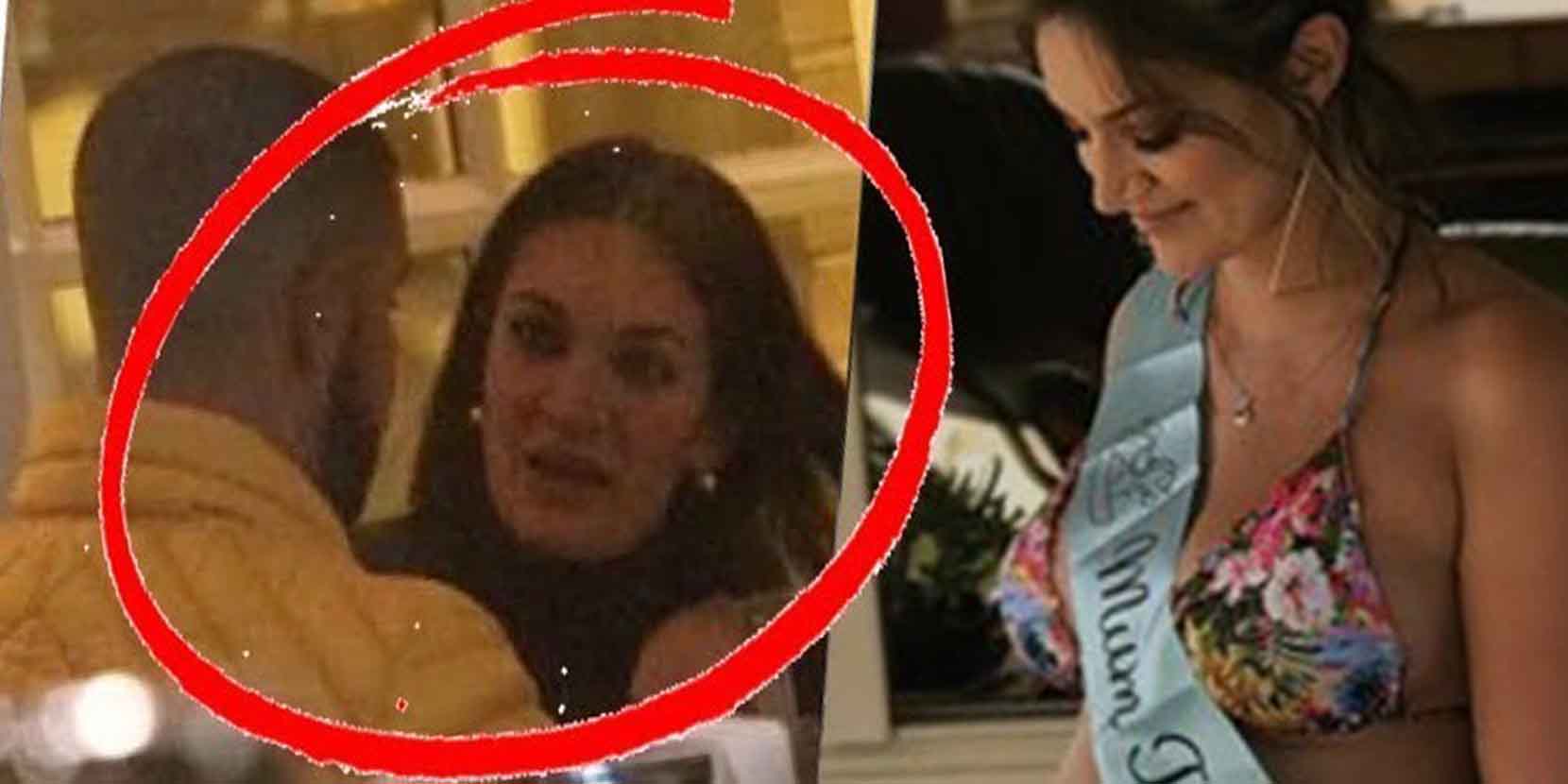A crucial late-night meeting including Dutch Prime Minister Mark Rutte, Germany’s Angela Merkel and Emmanuel Macron of France ended abruptly in a dispute over how much of the package should be disbursed as grants and how much as loans.
European Union leaders failed to unlock an agreement on a 750 billion-euro ($860 billion) response to the coronavirus pandemic after a second day of sparring in Brussels and will come back to try again on Sunday.
Leaders continued with informal talks after negotiations broke up at at 11 p.m. on Saturday as they tried to find common ground on the composition of the fund and the conditions attached to it. A crucial late-night meeting including Dutch Prime Minister Mark Rutte, Germany’s Angela Merkel and Emmanuel Macron of France ended abruptly in a dispute over how much of the package should be disbursed as grants and how much as loans.
Germany and France are insisting that at least 400 billion euros should be handouts and Rutte and four other fiscal hawks from northern Europe are pushing for a much lower figure, a French diplomat said. After several attempts at finding a compromise, Merkel and Macron left the meeting and returned to their hotel together for further discussions, the diplomat said.
“They are walking away grumpy,” Rutte told reporters afterward. “A compromise is possible tomorrow but there remain big issues.”
With investors already pricing in a deal after a series of bold announcement in recent weeks, leaders are under intense pressure to bridge their differences before financial markets open on Monday.
Yet the battle has exposed the fault lines at the heart of the EU. Fiscally hawkish countries from northern Europe are showing their resentment at paying for the pandemic while the southern countries worst affected are struggling to contain their outrage at the lack of solidarity.
“We will keep going because we have to resolve it,” Italian Prime Minister Giuseppe Conte told reporters. “Delaying this does no good to anyone.”
Rutte and his allies from Austria, Denmark, Sweden and Finland are trying to water down the handouts that the highly indebted South sees as critical for shoring up its finances. While Saturday proved less bad-tempered and more constructive than Friday’s gathering, it was still difficult to discern much progress. Conte called it a “deadlock” while a German diplomat said the talks had reached a critical phase.
The 27 leaders were meeting in person for the first time since February, when initial talks over the EU’s seven-year, 1 trillion-euro budget also ran into a wall. Now, with more than 100,000 Europeans dead from the virus and an economy to rebuild, investors are looking to the group to muster a display of unity to maintain the rally in stocks.
Saturday started with a fresh compromise proposal drafted by EU Council President Charles Michel but as time wore on, frustration grew. While Rutte, the hardliners’ ringleader, welcomed a proposal to reduce the amount of grants to 450 billion euros from 500 billion euros, his allies from Austria and Finland pushed for the total to go lower still setting up a clash with Merkel and Macron.
In an attempt to bend to another of Rutte’s demands, the new plan had also included a mechanism that would give any country the right to put the brakes on disbursement if it didn’t think the money was being spent correctly. The Dutch saw it as a step in the right direction, but the southerners fretted that it could slow up the cash they need to get their economies going. Leaders must agree unanimously if there’s to be a deal.
Power Brokers
The deliberations are proving to be a baptism of fire for Michel, a former Belgian Prime Minister, and European Commission President Ursula von der Leyen, who drew up the original plan. They only took up their jobs in December and have faced criticism from governments over their handling of the pandemic response.
Merkel and Macron have been pressing for an agreement before the summer but haven’t yet been able to bring to their weight to bear to force a result. The bloc’s two largest economies but are seen as crucial power brokers and they were photographed sitting on a sunny terrace as they searched for a breakthrough.
Adding to the complications is the number of side issues that are being tied to the fund.
Many leaders want to see access to financing linked to member states’ compliance with democratic standards and that’s something that Poland and Hungary strongly oppose, since both are subject to EU legal proceedings over rule-of-law backsliding.
Leaders spent the last part of the Saturday discussing the latest proposal, seen by Bloomberg, which stipulates that rule-of-law “conditionality under the regime will be genuine” and that when transgressions are identified, the European Commission will propose “appropriate and proportionate” measures. Those measures will be approved by a qualified majority rather than unanimously, meaning that the Poles and the Hungarians won’t have vetoes to bail each other out as they do in other areas.
Adding another layer of complexity, Hungary’s parliament passed a declaration this month that called on Prime Minister Viktor Orban to reject any stimulus package until the EU investigation into its democratic standards was withdrawn.













